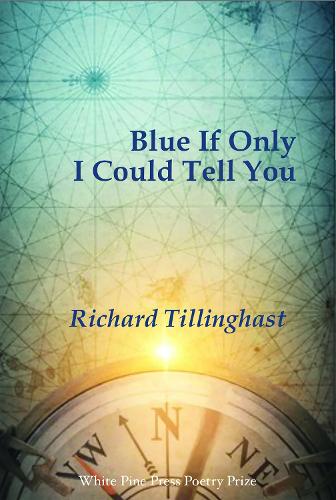
Blue If Only I Could Tell You
(Paperback)
Publishing Details
Blue If Only I Could Tell You
By (Author) Richard Tillinghast
White Pine Press
White Pine Press
24th January 2023
United States
Classifications
Physical Properties
Paperback
108
Width 228mm, Height 152mm
Description
Blue If Only I Could Tell You is the thirteenth collection of poetry by Richard Tillinghast. Long awaited, the book is his first since Wayfaring Stranger came out in 2012. Melodious, lyrical, these poems of place and displacement are deeply personal at times as they look back over a long and eventful life. Tillinghast also focuses on troubled and troubling aspects of the American story: the Indian Wars of the 19th century and the history of race relations in his native South, from slavery to the countrys current racial reckoning. It is rare to see a poet with such gifts for musicality, vivid imagery and finely honed diction address himself so pointedly to issues of social and political import.
Reviews
Blue If Only I Could Tell You is a book of journeys and arrivals, of the many far and consequential places we might find ourselves: Punjab, Tipperary, the sandy banks of the Platte River in Nebraska. Exquisitely plainspoken, clear-eyed and wise, Tillinghast is keenly aware of the histories and stories that shape our worlds; these poems roam and wonder and find homes for us everywhere.Joe Wilkins, author of When We Were Birds and judge for the White Pine Press Poetry Prize
Blurbs from previous titles:
More outward-looking and international-minded though he is than most contemporary American poets, Tillinghast nonetheless registers his countrys history on his pulse. . . . His most recent poems, undoubtedly his finest to date, fuse a sobering sense of mortality with the exhilaration of renewal, indeed rejuvenation, through love.Dennis ODriscoll, from the introduction to Selected Poems, 2009
These powerful, deceptive poems appear to be about place. At first sight, they engage and enchant us with the eloquences and cadences of objects and distances: strange headstones, unfamiliar peat smoke and faraway drift-fishing. But the force of this work is to make us wake from those enchantments to see that these are, in fact, not poems of place, but of displacement. It is the pain and waywardness of that displacement which makes these poems, finally, so compelling.Eavan Boland on Six Mile Mountain, 2000
Author Bio
Richard Tillinghast was born and raised in Memphis. After college at Sewanee he did graduate work at Harvard, where he studied with Robert Lowell. The author of thirteen books of poetry and five of creative nonfiction. He has taught at Harvard, Berkeley, the College Program at San Quentin Prison, and the University of Michigan in the US as well as at Trinity College Dublin and the Poets House in Ireland. He has been awarded the James Dickey Prize for poetry from Five Points and the Cleanth Brooks Award for nonfiction from The Southern Review. Currently a member of the Core Faculty in the Converse College MFA program, he is Emeritus Professor of English at the University of Michigan and a founder and past Director of the Bear River Writers Conference in Northern Michigan.
